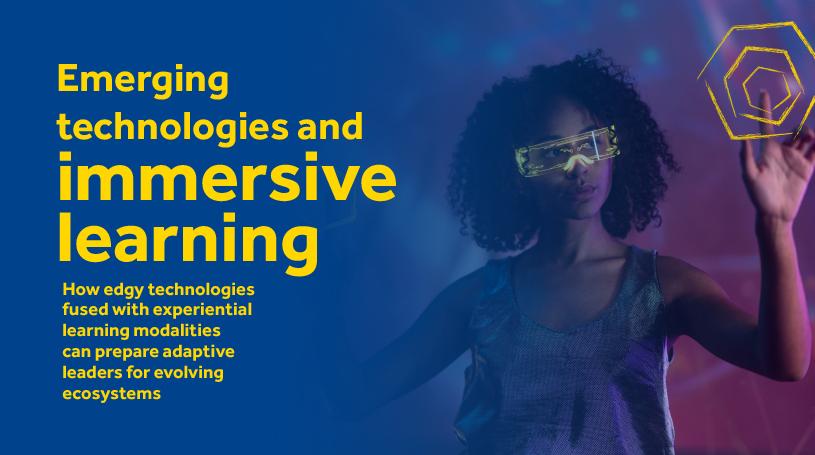Emerging technologies and immersive learning
While technology has been changing the nature of work and the lives of workers since the advent of the 18th-century First Industrial Revolution, and the subsequent Second, Third and Fourth Industrial Revolutions of the 19th, 20th and 21st centuries, never has the extent of the change unleashed on the world been quite as rapid as it is today.
While knowledge workers were previously assumed to be invulnerable to technological change, as noted by Prof. Steven Mintz from the University of Texas in 2023, this is no longer the case. A new generation of disruptive technologies, including spatial computing, such as extended reality and generative artificial intelligence models like ChatGPT, are changing the landscape.
Business schools, amongst other shape-shifting institutions in society, need to instil in students as organisational leaders the next skills and expertise they will require in a race that pits people, education, and organisations against an endless tide of technological innovation.
This white paper explores the nature and potential of immersive learning, delving into some of its earlier non-technological roots and asking how business schools can leverage edgy technologies, such as virtual reality and generative artificial intelligence, by entwining them with immersive learning models to prepare adaptive leaders to face a fast-changing world with the confidence and resources to lead and succeed.
Read the full white paper document looking into how edgy technologies fused with experiential learning modalities can prepare adaptive leaders for evolving ecosystems.

